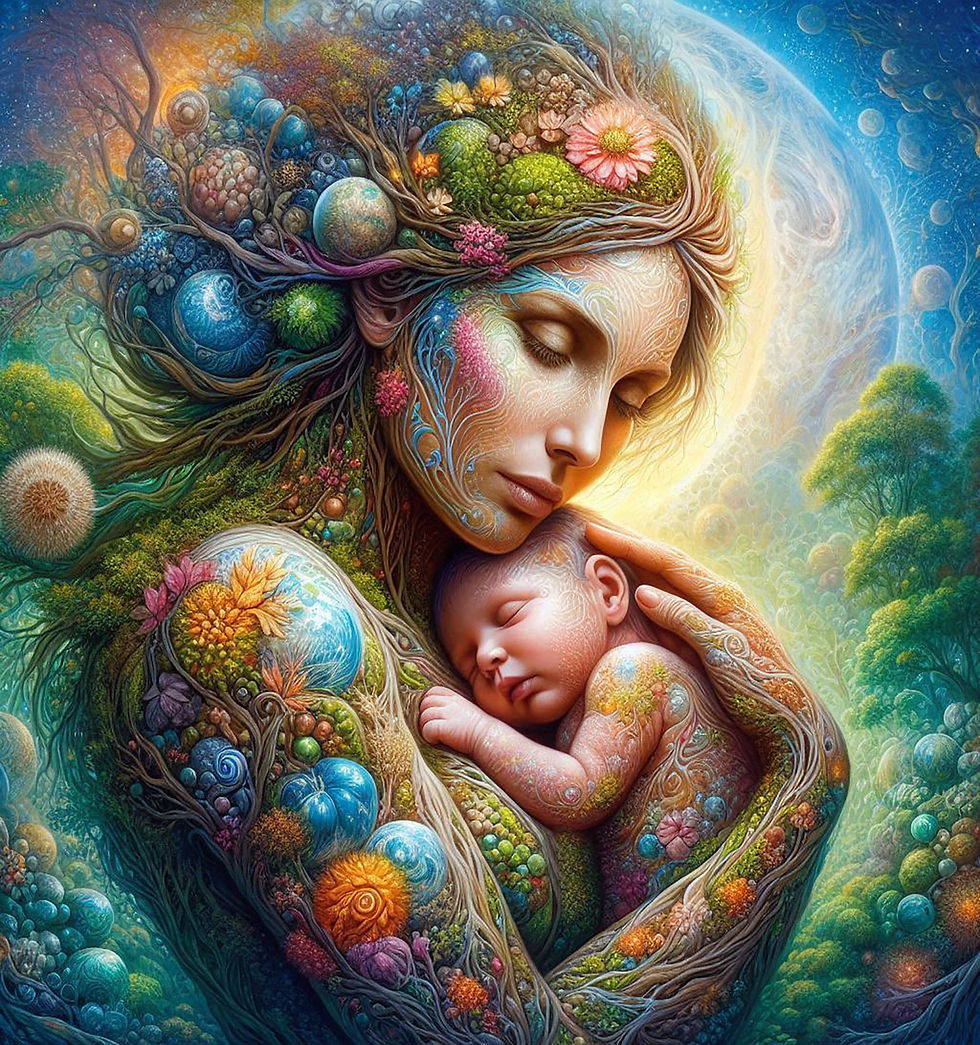
Have you ever stopped to wonder why we call her "Mother Nature?
This enduring phrase isn't just a casual metaphor - it's a reflection of deep-rooted cultural beliefs, ancient mythologies, and linguistic traditions that personify the natural world as a nurturing, life-giving force.
From the goddesses of Greek mythology to the feminine grammar in various languages, the concept of Mother Nature weaves together history and symbolism to highlight our intrinsic connection with the environment.
You've likely heard the terms "Mother Earth" and "Mother Nature" - phrases that personify the natural world as a nurturing, life-giving entity. These expressions have deep roots, tracing back to Greek mythology and the Renaissance term "Tellus Mater" or "Terra Mater" in Latin, both meaning "Mother Earth."
But why do we often refer to nature in the feminine form?
The association of nature with motherhood stems from historical and cultural beliefs that connect women with nurturing and life-giving qualities. In many societies, mothers are viewed as primary caregivers, embodying warmth, protection, and sustenance. These attributes naturally extend metaphorically to nature, which provides the essential conditions for life to flourish.
Moreover, ancient mythologies and religious traditions frequently personify nature as a feminine force or deity. For instance, Gaia in Greek mythology is the personification of the Earth, while Pachamama in Incan beliefs represents Mother Earth. Similarly, in Hinduism, the goddess Devi embodies the divine feminine aspect of the natural world. These deities symbolize fertility, growth, and the nurturing aspects of the earth, reinforcing the feminine portrayal of nature.
Linguistic factors also play a role. In many languages, the word for "nature" is grammatically feminine, influencing how cultures personify it. For example, in languages like Spanish and French, "nature" is feminine, which supports the use of feminine pronouns and terms when referring to it.
Symbolically, the cyclical patterns of nature - the changing seasons, growth cycles, and regenerative processes - mirror the life-giving and nurturing roles traditionally associated with mothers. This metaphor strengthens the personification of nature as "Mother Nature," emphasizing its caring and sustaining characteristics.
While "Mother Nature" is the more common personification, it's important to note that nature is sometimes referred to without gendered connotations or even as "Father Nature" in certain cultural or philosophical contexts. The terminology varies, reflecting the diverse ways humans conceptualize and relate to the natural world throughout history.
In embracing the concept of Mother Nature, we acknowledge the profound connection between the nurturing aspects of motherhood and the life-sustaining forces of the natural world.
This personification serves as a reminder of our intrinsic relationship with the environment - a bond that calls for respect, care, and stewardship to preserve the earth for future generations.
Comments